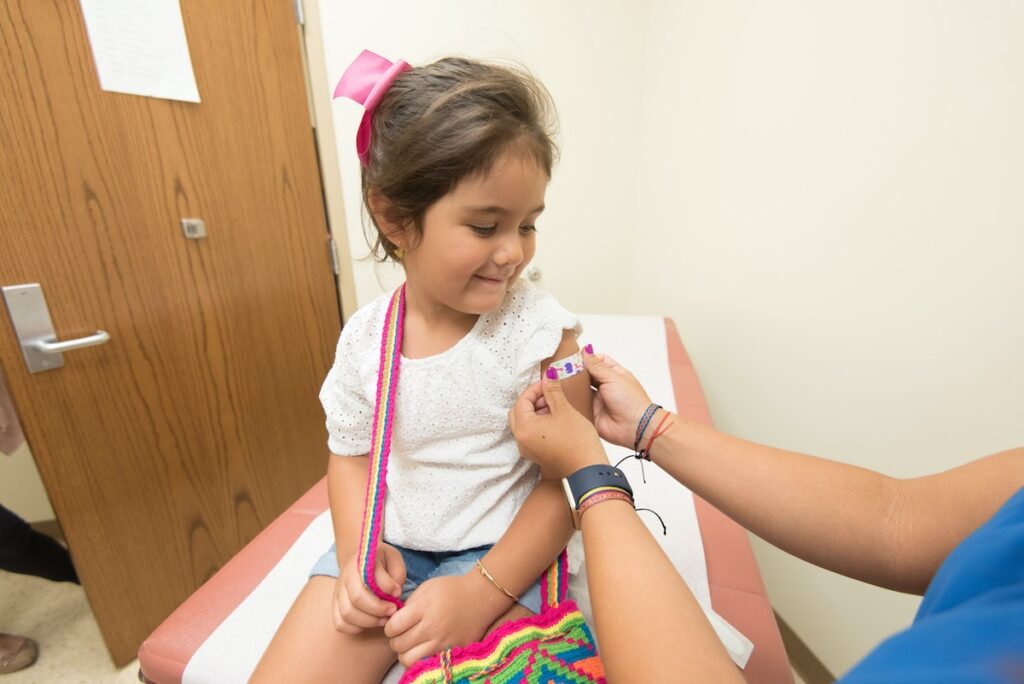Attention Deficit Hyperactivity Disorder, more commonly known as ADHD, is a brain disorder that can affect children differently. If left untreated, this issue can cause a child to be restless, misbehave, and prevent him or her from learning in school.
If your child has symptoms of ADHD, it’s important to contact Pediatrics West at our Wheat Ridge or Littleton location for a consultation.
What is the difference between ADHD & ADD?
ADHD is a neurodevelopmental disorder. The term ADD, or Attention Deficit Disorder, is an old diagnostic term used to describe children who have inattentive symptoms but lack hyperactivity.
Children who meet the criteria for this disorder are now diagnosed with ADHD with one of three subtypes based on which symptoms are most prominent; ADHD inattentive, ADHD hyperactive-impulsive, ADHD combined.
Attention-Deficit/Hyperactivity Disorder and Its Causes
ADHD is one of the most common neurodevelopment disorders for children. If your child has ADHD, you may notice your child has trouble paying attention, controlling their behavior, or being overly active.
Over the years, there has been a lot of misinformation about the causes of ADHD. Researchers used to believe that ADHD could be the result of brain damage, head injuries, parenting, or even the ingestion of too much refined sugar. All of these theories have been disproved.
Simply put, ADHD is caused by chemical and structural dysfunctions in the brain that are the result of genetics. Pathways in the brain and neurotransmitters that regulate dopamine and norepinephrine are different in those with ADHD than those without.
What are the signs & Symptoms of ADHD?
Inattention, hyperactivity, and impulse control are not symptoms that are exclusive to children with ADHD, but the symptoms tend to be more pronounced in those who are affected. Although ADHD affects everyone differently, the following behaviors are the most commonly observed issues:
Inattention
ADHD can cause a child to have difficulty paying attention. Children who are inattentive tend to be disorganized and may give up on tasks easily. Many parents mistake these behaviors as simply misbehaving, but in children with ADHD they are not making an intentional choice to behave this way. Previously, children who had issues with inattention may have been diagnosed with ADD, but
Hyperactivity
Hyperactivity causes a child to feel the need to move or fidget, even in situations where it may not be appropriate. If you notice that your child frequently taps his or her fingers, rapidly moves his or her legs when sitting or simply talks an above-average amount, ADHD may be causing this behavior.
Impulse Control
Typically, even children without ADHD need to learn impulse control over time. But, if your child doesn’t seem to “grow out of” the pattern of making decisions without thinking or interrupting others, the disorder could be the cause.
Diagnosis & Treatment
There is no single test for ADHD, and diagnosing it can be a process. The first step is a medical exam to rule out other problems with similar symptoms to ADHD. Schedule an appointment with your physician for an evaluation. If your child is diagnosed with ADHD, our doctors will work with you to create a custom plan for treating your child based on their needs.
ADHD can be successfully managed, and there are many resources to help parents guide their child towards success. With appropriate care, a child can manage symptoms and can begin to better focus in school and at home. Common treatment options include:
Therapy
Research shows behavior therapy is an important part of treatment and often should be started as soon as diagnosis is made. In therapy, a therapist works will work with your child to help them learn to express their feelings in positive ways and to learn new behaviors to replace the ones that cause problems or are disruptive. Therapy can include therapy for just the child, behavior therapy training for parents, or a combination of both.
Education for Parent & Child
Parents can help create an environment that will allow their child to thrive. Some examples include following a routine, organizing your home to make it easier for your child to find things, helping your child plan, managing distractions, a healthy lifestyle, and finding positive opportunities where your child can feel successful.
School Intervention
ADHD can make it difficult for a child to pay attention or sit still in school. It’s important to make teachers aware of your child’s diagnosis and create a plan together for accommodations in the classroom to help them succeed.
Medication
Medication can be an effective treatment to decrease severe symptoms. Medications can affect children differently, and your doctor may need to try different medications or dosage to find the right combination for your child.
Doctor’s Blog: Your resource for answers and education
We know parents sometimes turn to the Internet for answers. We hope you’ll find our blog a helpful resource for every step of your child’s journey.


